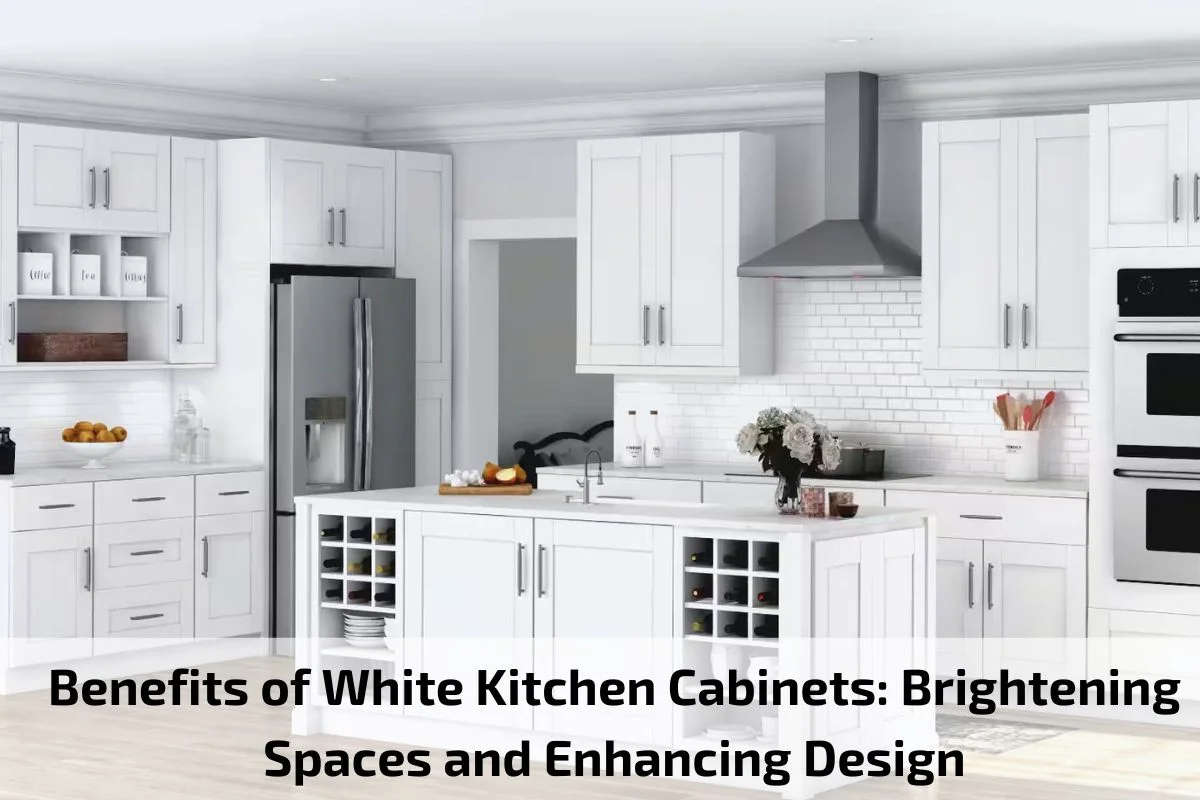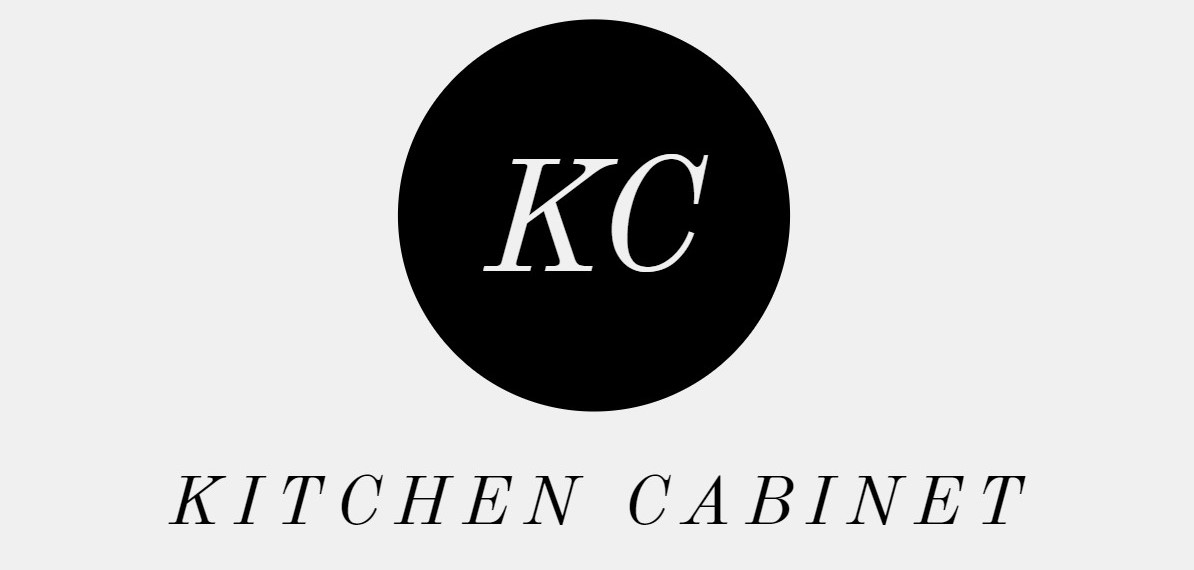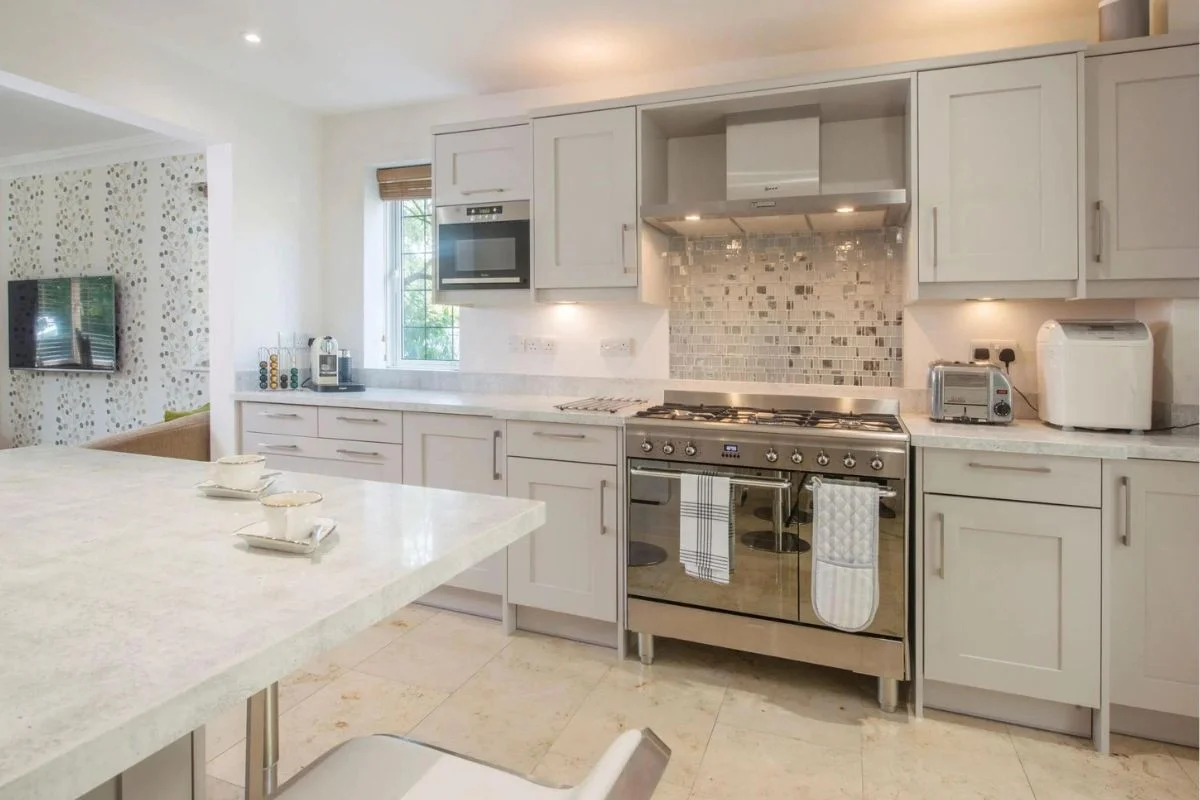
White kitchen cabinets have long been a staple in interior design, renowned for their ability to brighten spaces and enhance overall aesthetics. In recent years, their popularity has surged as homeowners and designers alike embrace the timeless elegance and versatility that white cabinetry brings to kitchen spaces.
In this article, we’ll explore the myriad benefits of white kitchen cabinets, focusing on how they can transform a kitchen into a light-filled, inviting space while elevating its design appeal. From creating a sense of openness and airiness to serving as a blank canvas for endless design possibilities, white cabinets offer a range of advantages that make them a popular choice for modern kitchens.
Join us as we delve into the many benefits of white kitchen cabinets, discussing how they can brighten spaces, make small kitchens feel larger, and complement a variety of design styles. Whether you’re renovating your kitchen from scratch or looking for ways to refresh its look, white cabinets offer a versatile and timeless solution that can enhance the beauty and functionality of your home’s most important gathering space.
Importance of Kitchen Cabinets in Kitchen Design
Kitchen cabinets are the backbone of any kitchen design, serving as essential storage solutions while also significantly influencing the overall aesthetics and functionality of the space. Here are several reasons highlighting the importance of kitchen cabinets in kitchen design:
Storage Solutions: Kitchen cabinets provide invaluable storage space for a wide range of items, including cookware, utensils, small appliances, pantry items, and tableware. By offering designated storage areas, cabinets help keep the kitchen organized and free of clutter, allowing for easy access to essentials during meal preparation and cooking.
Space Optimization: Cabinets are designed to maximize space utilization, making the most of available square footage in the kitchen. They come in various configurations, including base cabinets, wall cabinets, and tall cabinets, allowing homeowners to customize their storage solutions to suit their specific needs and kitchen layout.
Aesthetic Appeal: Kitchen cabinets play a significant role in shaping the visual appeal of the kitchen space. The style, color, and finish of cabinets contribute to the overall design aesthetic, whether it’s classic and traditional, sleek and modern, or rustic and farmhouse-inspired. Cabinets serve as focal points in the kitchen, enhancing the beauty and cohesiveness of the design.
Design Cohesion: Cabinets help tie together various design elements in the kitchen, including countertops, backsplashes, and appliances. Coordinating the style and color of cabinets with other elements creates a cohesive and harmonious look, elevating the overall design of the kitchen and creating a sense of unity throughout the space.
Functionality Enhancement: Well-designed kitchen cabinets enhance the functionality of the kitchen by streamlining workflow and improving accessibility. Organized storage solutions, such as pull-out drawers, adjustable shelves, and specialized organizers, make it easier to locate and retrieve items, leading to a more efficient and enjoyable cooking experience.
Property Value: High-quality kitchen cabinets are considered desirable features in a home and can significantly impact its resale value. Potential buyers often prioritize kitchens with ample storage and well-designed cabinets, making them attractive selling points for homeowners looking to sell their property in the future.
Styling Tips for White Kitchen Cabinets
White kitchen cabinets offer a versatile canvas for creating a bright, airy, and inviting kitchen space. Here are some styling tips to make the most of your white cabinetry:
Contrast with Bold Colors: Use bold or vibrant colors to create contrast against white cabinets. Consider painting the walls in a rich hue, adding colorful backsplash tiles, or incorporating colorful accents such as bar stools, rugs, or kitchen accessories to infuse personality and visual interest into the space.
Embrace Natural Elements: Bring warmth and texture to your kitchen by incorporating natural elements such as wood, stone, or metal. Consider adding a wooden butcher block countertop, stone backsplash, or metal hardware and fixtures to complement the clean, crisp look of white cabinets and add depth to the design.
Play with Texture: Introduce texture to the kitchen design to add visual interest and dimension. Consider incorporating textured materials such as subway tiles, shiplap walls, or textured cabinet finishes to create depth and contrast against smooth white cabinetry, adding layers of visual intrigue to the space.
Accessorize Thoughtfully: Choose kitchen accessories and decor items that complement the clean and timeless look of white cabinets. Opt for minimalist or understated accessories such as sleek stainless steel appliances, glass pendant lights, or ceramic vases in neutral tones to enhance the elegance of white cabinetry without overwhelming the space.
Opt for Open Shelving: Consider incorporating open shelving into your kitchen design to break up the monotony of white cabinets and create visual interest. Display decorative items, cookbooks, or glassware on open shelves to add personality and warmth to the space while showcasing your personal style.
Add Greenery: Bring life and freshness to your kitchen by incorporating indoor plants or fresh flowers. Place potted herbs on windowsills, hang a small herb garden near the windows, or display a vase of fresh flowers on the countertop to add a pop of color and natural beauty to the white cabinetry.
Layer Lighting: Illuminate your kitchen with layered lighting to enhance the ambiance and functionality of the space. Install recessed ceiling lights for overall illumination, under-cabinet lighting for task lighting, and pendant lights or chandeliers for ambient lighting to create a warm and inviting atmosphere in the kitchen.
Designing with White Kitchen Cabinets
White kitchen cabinets serve as a versatile foundation for designing a variety of kitchen styles, from classic and traditional to modern and minimalist. Here are some tips for designing with white kitchen cabinets:
Classic and Traditional: For a classic and timeless look, pair white cabinets with traditional design elements such as decorative molding, raised-panel cabinet doors, and ornate hardware. Choose countertops and backsplashes in natural materials like marble or granite, and add warmth with wooden flooring or accents.
Modern and Minimalist: Create a sleek and contemporary kitchen by pairing white cabinets with clean lines and minimalist design elements. Opt for flat-panel or slab-style cabinet doors, sleek hardware, and minimalist fixtures and finishes. Keep the color palette neutral and add visual interest with textures and geometric shapes.
Transitional and Eclectic: Blend traditional and contemporary elements to achieve a transitional or eclectic kitchen design. Mix white cabinets with contrasting colors or finishes, such as dark wood or bold colors, to create visual interest. Incorporate eclectic accessories, such as vintage rugs or statement lighting, to add personality and charm to the space.
Maximizing Space: White cabinets are ideal for maximizing space in small kitchens or open-concept layouts. Choose sleek, handle-less cabinet doors and integrated appliances to create a seamless and streamlined look. Use reflective surfaces, such as mirrored backsplashes or glossy countertops, to enhance the sense of space and light in the kitchen.
Creating Contrast: White cabinets provide a blank canvas for creating contrast in the kitchen design. Pair white cabinets with dark or bold-colored countertops, backsplashes, or flooring to create a striking visual contrast. Incorporate textured materials or finishes to add depth and dimension to the space.
Adding Accents: Use white cabinets as a backdrop for adding accents and focal points in the kitchen design. Introduce pops of color through accessories, such as colorful bar stools, pendant lights, or artwork. Consider incorporating statement pieces, such as a bold-patterned rug or a statement backsplash, to add personality and visual interest to the space.
Balancing Light and Bright: Balance the brightness of white cabinets with natural and artificial lighting. Maximize natural light by positioning windows strategically and using sheer or light-filtering window treatments. Supplement natural light with layered lighting, including recessed ceiling lights, under-cabinet lighting, and pendant lights, to create a well-lit and inviting atmosphere in the kitchen.
Inspirational Ideas for White Kitchen Cabinets
White kitchen cabinets provide endless opportunities for creating a bright, airy, and inviting kitchen space. Here are some inspirational ideas to spark your creativity:
Classic Elegance: Embrace timeless elegance by pairing white cabinets with marble countertops, subway tile backsplash, and traditional crown molding. Add warmth with wooden flooring and accents, and accessorize with vintage-inspired lighting fixtures and hardware for a classic look that never goes out of style.
Modern Minimalism: Achieve a sleek and contemporary look with white cabinets paired with minimalist design elements. Opt for flat-panel or slab-style cabinet doors, stainless steel appliances, and quartz countertops for a clean and streamlined aesthetic. Keep the color palette neutral and add visual interest with geometric shapes and textures.
Coastal Vibes: Create a coastal-inspired kitchen with white cabinets, light blue or turquoise accents, and natural materials such as rattan, driftwood, and seagrass. Incorporate open shelving to display beach-inspired decor and artwork, and add nautical touches like rope handles or brass hardware for a relaxed and inviting vibe.
Farmhouse Charm: Capture the charm of a farmhouse kitchen with white cabinets paired with rustic elements such as reclaimed wood beams, farmhouse sinks, and open shelving. Choose butcher block countertops, subway tile backsplash, and vintage-inspired fixtures and hardware to add warmth and character to the space.
Scandinavian Simplicity: Embrace Scandinavian design principles by pairing white cabinets with clean lines, natural light, and minimalist decor. Opt for light-colored wood flooring, white or light-colored countertops, and simple, functional furniture and accessories for a bright and airy Scandinavian-inspired kitchen.
Transitional Blend: Blend traditional and contemporary elements to create a transitional kitchen design with white cabinets. Mix and match cabinet styles, finishes, and hardware for added visual interest, and incorporate eclectic accents such as patterned rugs, colorful artwork, and statement lighting for a personalized touch.
Bold Accents: Use white cabinets as a backdrop for adding bold accents and focal points in the kitchen design. Introduce pops of color through backsplash tiles, kitchen island paint, or statement lighting fixtures. Consider incorporating patterned tiles or wallpaper for added visual interest and personality.
Open Shelving: Create an open and airy feel in the kitchen by incorporating open shelving alongside white cabinets. Display cookbooks, decorative dishes, or plants on open shelves to add warmth and personality to the space while keeping essentials within easy reach
Maintenance and Care of White Kitchen Cabinets
Proper maintenance and care are essential for preserving the beauty and longevity of white kitchen cabinets. Here are some tips to keep your cabinets looking pristine:
Regular Cleaning: Wipe down the exterior surfaces of your cabinets regularly with a soft, damp cloth and mild detergent to remove dust, dirt, and grease. Avoid using harsh chemicals or abrasive cleaners, as they can damage the finish.
Protective Measures: Use coasters or placemats under glasses and dishes to prevent water rings and stains on cabinet surfaces. Install door bumpers or soft-close mechanisms to prevent slamming and minimize wear and tear on cabinet doors and drawers.
Avoiding Heat and Moisture: Protect your cabinets from excessive heat and moisture, as they can cause warping, discoloration, and damage to the finish. Use exhaust fans while cooking to reduce moisture buildup and avoid placing hot pots and pans directly on cabinet surfaces.
Preventive Maintenance: Inspect cabinet hinges, handles, and drawer slides regularly for signs of wear or looseness. Tighten screws and lubricate moving parts as needed to ensure smooth operation. Address any issues promptly to prevent further damage.
Deep Cleaning: Periodically deep clean your cabinets to remove built-up grime and grease. Use a gentle cleaner specifically formulated for wood or laminate surfaces, and follow manufacturer instructions for best results. Avoid using abrasive scrubbers or pads, as they can scratch the finish.
Touch-Up and Repair: Keep a touch-up kit on hand to repair minor scratches, chips, or dents in the cabinet finish. Follow manufacturer instructions for using touch-up paint or markers to conceal imperfections and maintain the appearance of your cabinets.
Professional Maintenance: Consider hiring a professional for deep cleaning, refinishing, or repairs if your cabinets require extensive maintenance or restoration. A professional can help restore the beauty and functionality of your cabinets and prolong their lifespan.
Conclusion
White kitchen cabinets offer timeless elegance, versatility, and a bright, airy aesthetic that can enhance any kitchen space. With proper maintenance and care, these cabinets can remain a stylish and functional focal point for years to come.




